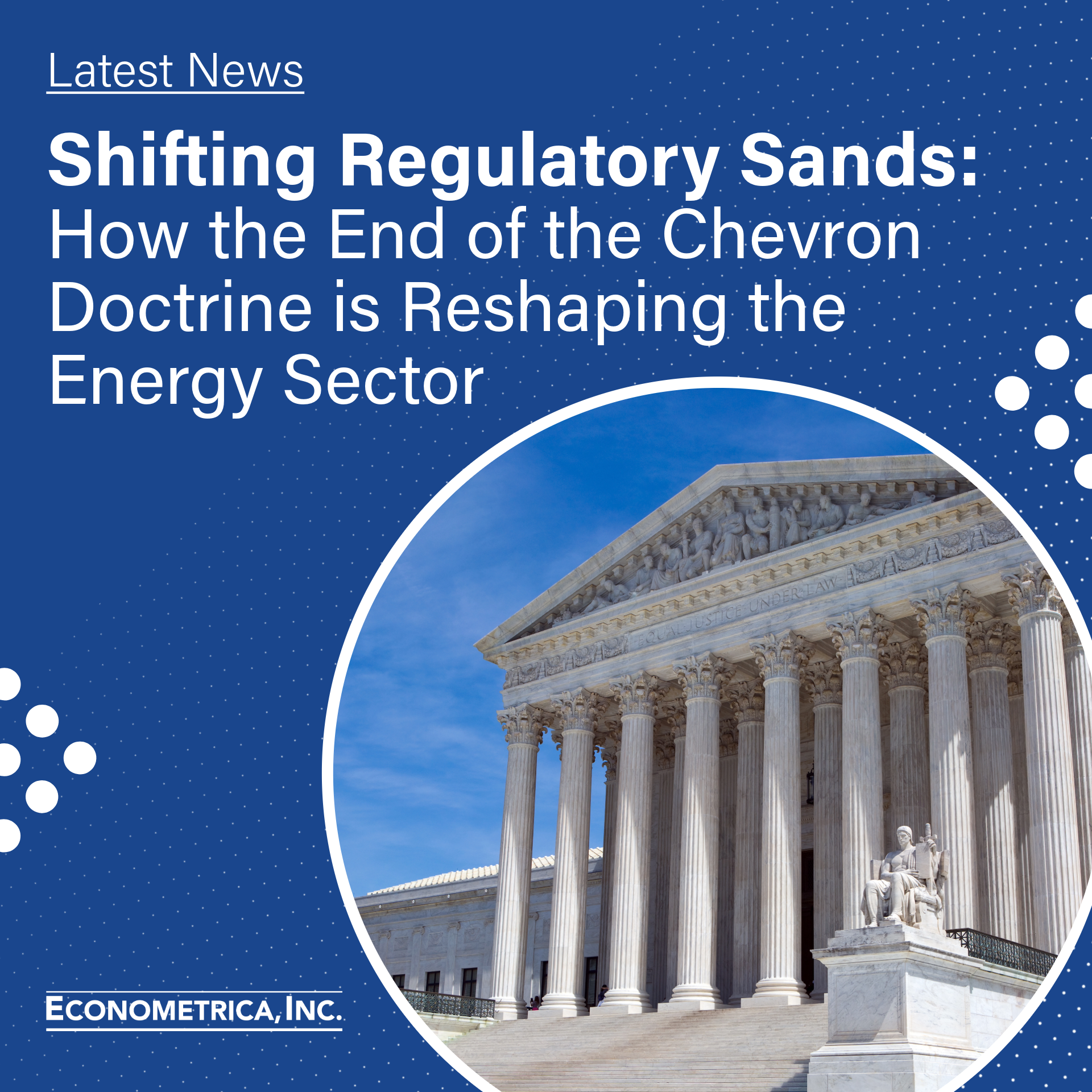
The recent U.S. Supreme Court decision to overturn the 1984 Chevron v. National Resources Defense Council precedent has sent shockwaves through the world of Federal rulemaking. While the Court expressly stated that it is not overturning previously decided cases that directly applied Chevron, the ruling will nevertheless greatly curtail the longstanding practice of judicial deference to Federal agencies when interpreting ambiguous statutes, marking a shift toward more rigorous judicial scrutiny.
With the Chevron doctrine now overturned, courts are expected to exercise greater independent judgment in evaluating agency decisions. This new approach will compel Congress to draft legislation with greater precision and require Federal agencies to be more transparent and thorough in their rulemaking processes. The consequences of this ruling will be widespread, with particularly acute effects on the energy sector. Areas subject to recent Federal rulemaking, such as greenhouse gas emissions, emerging technologies like carbon capture and storage (CCS), and regional electric transmission planning for renewable energy, may face increased legal challenges in the coming years.
A key early test of this shift will be the U.S. Environmental Protection Agency’s (EPA) April 2024 regulation on emissions from fossil fuel-fired power plants. Although the 2022 Inflation Reduction Act (IRA) grants the EPA authority to regulate greenhouse gases, it is ambiguous regarding the specifics of how it should regulate the air pollutant. The new requirement for coal and gas plants to reduce greenhouse gas emissions by 90 percent by 2032 and the perceived favoring of cleaner energy sources inherent in such a goal may be particularly vulnerable to legal challenges like the ones issued on July 19, 2024, from West Virginia and 26 other States.
Another area ripe for future scrutiny involves the application of existing legislation, such as the 1990 Clean Air Act (CAA), to emerging technologies. For instance, under the power plant emissions ruling, the EPA invokes Section 111 of the CAA, requiring coal plants to reduce their pollution by the “best system” available that is “adequately demonstrated.” While the EPA determined that the standards achieved under carbon capture would constitute the “best system,” it is uncertain whether a post-Chevron court will agree that this technology is “adequately demonstrated” given that there is only one commercial-scale carbon capture storage project operational in the world.
Similarly, the Federal Energy Regulatory Commission’s (FERC) May 2024 ruling Order No.1920, which sets a 20-year planning horizon for regional electrical transmission expansion to support renewable energy, faces legal uncertainty. This uncertainty arises from the conflict between Federal- and State-level public policy goals on energy generation and climate change inherent in inter-State transmission investments. Given that FERC’s Order No. 1920 is grounded in a 2014 appellate ruling that invoked Chevron, the end of this deference has already prompted several lawsuits from State regulators and environmental groups.
In this new legal landscape, future Federal rulemaking will face a higher burden of proof for ambiguous statutes, demanding enhanced technical rigor and economic justification from both Congress and Federal agencies to withstand judicial scrutiny. With more than 25 years of experience in government consulting and a team of experts in economics, data science, and policy, Econometrica, Inc., is well-positioned to guide stakeholders through these evolving regulatory challenges in the Federal rulemaking process.
Work With Us, Work for Us
Econometrica is a small business research and management consulting organization based in the greater Washington, DC, metropolitan area that is committed to improving the human condition by providing high-quality, cost-effective analytics and support that enables our clients to solve the challenges of today’s world. We collaborate with Federal agencies, State and local governments, philanthropic and nonprofit clients, and private-sector partners in the public health, healthcare, data analytics, housing, and finance sectors. Econometrica started as an organization focused on econometric analysis and now has more than 26 years of proven excellence in consulting, with staff across the United States. To work with us on your next project, visit us online or email us at Info@EconometricaInc.com. To explore the benefits of working for us, visit our careers page. Follow us on LinkedIn, X, Facebook, and Instagram.
